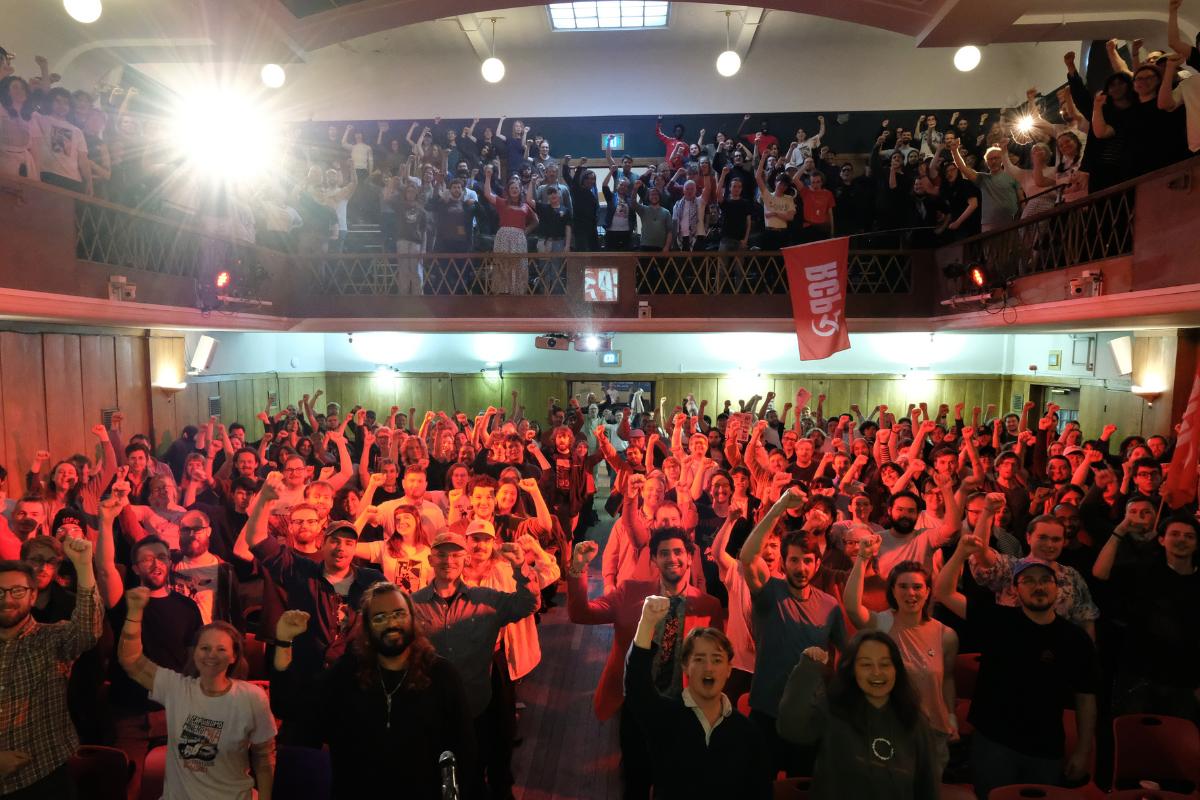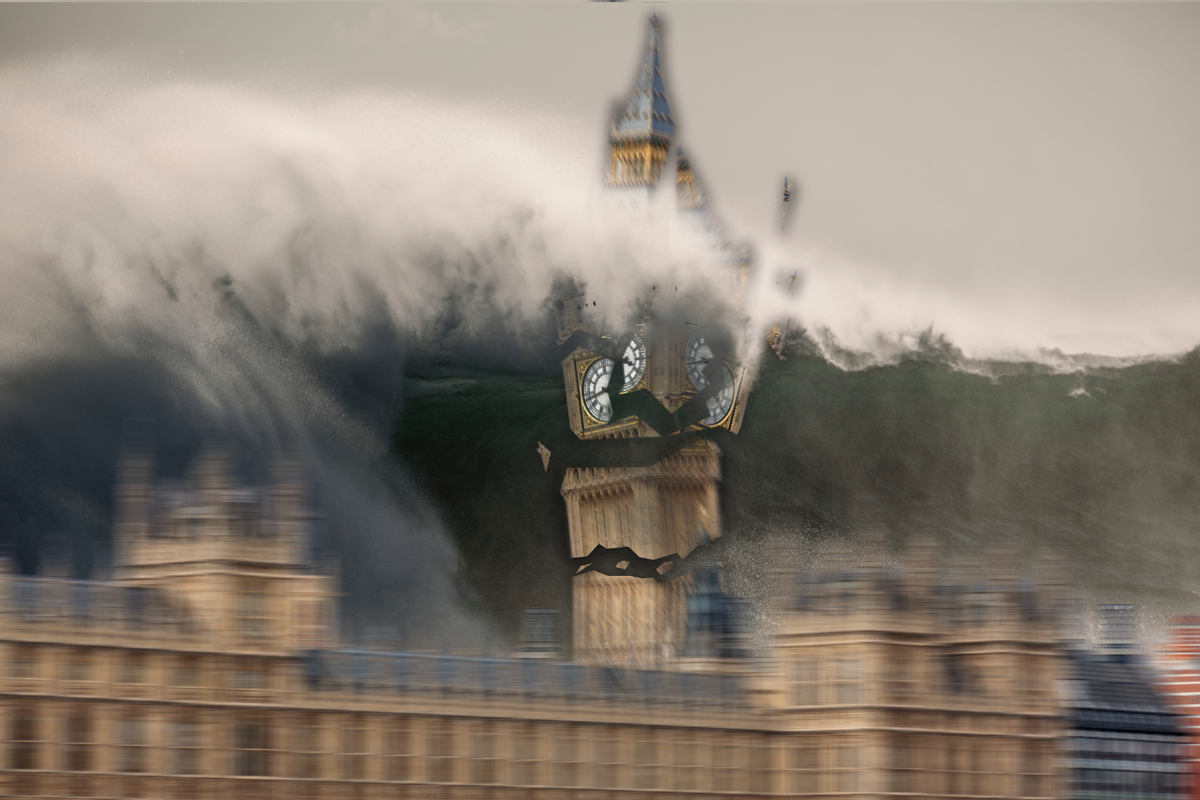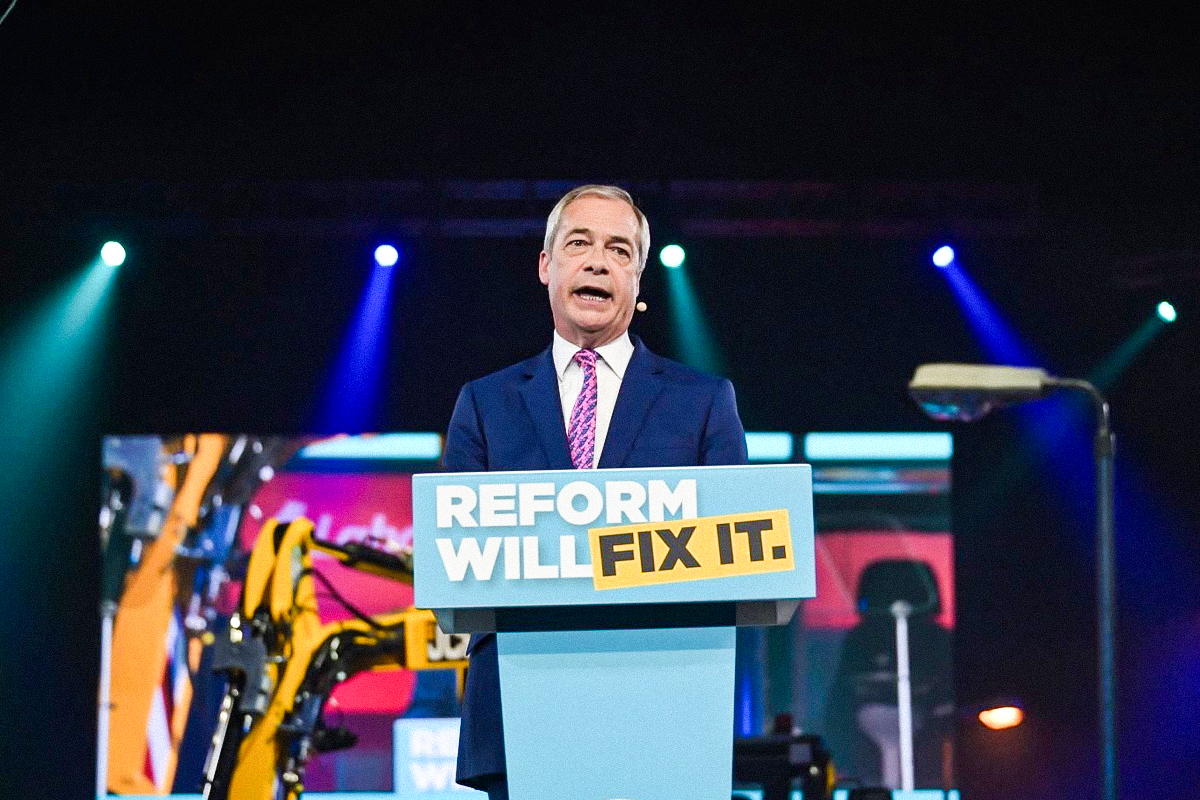The 2025 British Perspectives document was passed unanimously by delegates of the Second Congress of the Revolutionary Communist Party on 4 May 2025. We publish here a slightly amended version of that document.
We recommend reading this alongside our 2025 Organisational Resolution which outlines our strategy, tactics, and methods for the coming year.
International background
The purpose of a perspectives document is to outline the main processes taking place in society and how likely they are to pan out. Therefore this document will concentrate on the fundamentals, leaving all secondary details to one side. In this way we will get a clearer view of what is taking place.
Firstly, it is not possible to understand perspectives in Britain in isolation. We have to take them in the context of the world situation, of the world crisis of capitalism, which is decisive. Every country is bound inextricably as never before to the world economy.
Shocks in one country – war, terrorism, economic and political crises, etc. – reverberate elsewhere. We have entered one of the most disturbed periods in history.
Every one of the optimistic views of the bourgeois strategists following the world’s reemergence from the pandemic has turned to dust. The pent-up demand from the lockdown was supposed to unleash a new boom and a new period of stability. But the economic recovery was short lived. Today, the bourgeois strategists are holding their heads in their hands, consumed with gloom as they face multiple crises on different fronts.
According to Kristalina Georgieva, the managing director of the IMF, we are facing on a world scale an “unforgiving combination of low-growth and high debt – a difficult future”. The word “difficult” is clearly an understatement, designed to calm frayed nerves.
While the US has experienced growth, the Eurozone is faced with stagnation and a deepening crisis. This is reflected in turn in a crisis of confidence in the European project itself.
The crisis of European capitalism is underlined by the serious problems haunting Germany, Europe’s biggest economy, which is experiencing its third year of recession, the longest in the country’s history.
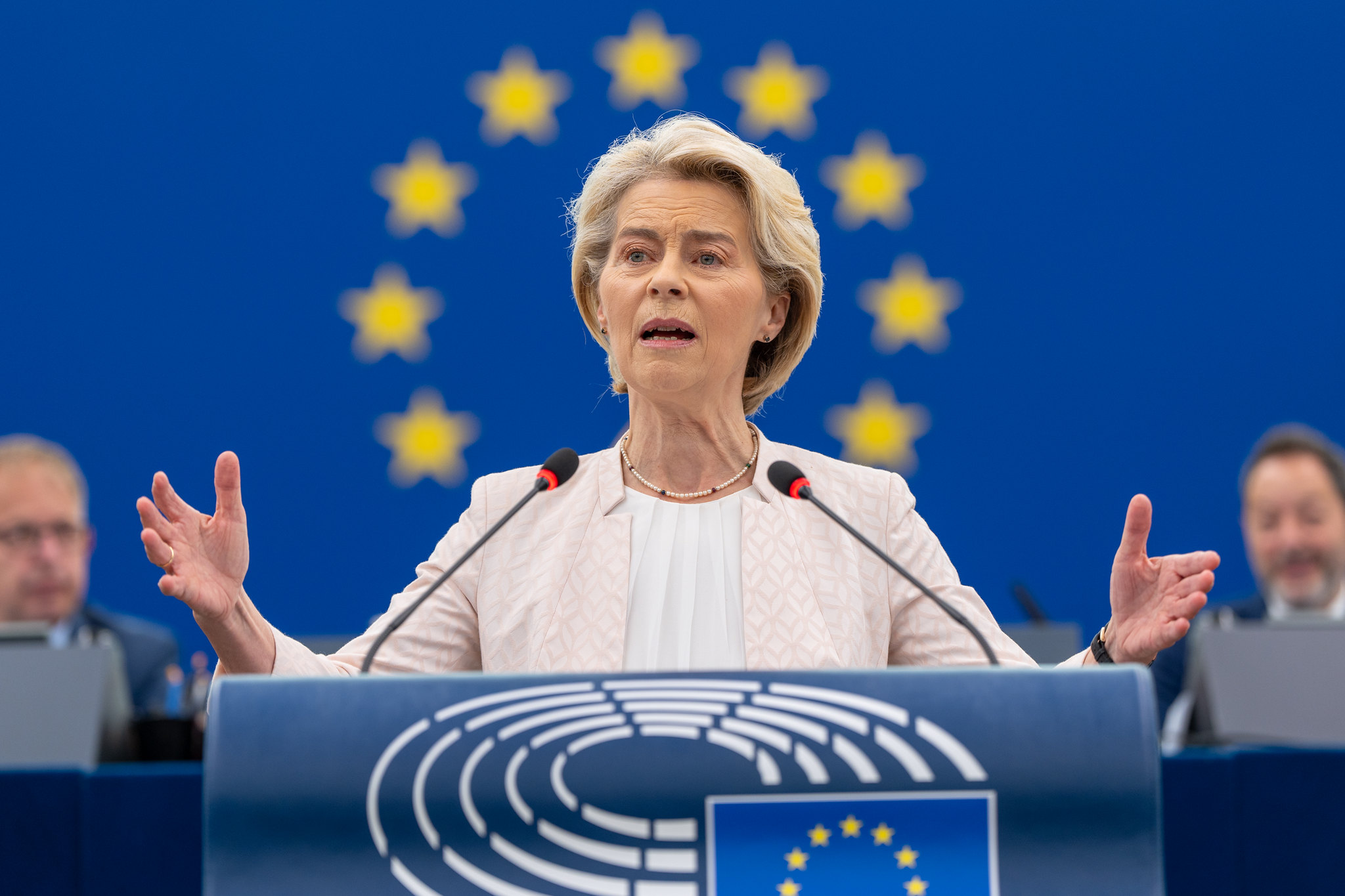
The German coalition government has collapsed, precipitated by a row over the budget. Similarly, an inability to push through cuts and counter-reforms has also provoked a political crisis in France, where the Macron presidency is hanging by a thread. In both countries, the ‘populist’ right are looking to make big electoral gains, at the expense of the ‘centre’ parties. This highlights how the crisis of capitalism has become a crisis of liberalism.
“There is a sense of gloom and uncertainty”, says Eswar Prasad, the senior fellow at the Brookings Institute. This feeling of foreboding is pervasive.
The war in the Ukraine has only added to the instability and tensions globally. The conflict with Russia was provoked by the United States in their efforts to expand NATO and weaken Russia. Sanctions on Russia in turn provoked a massive energy crisis, cutting off cheap Russian gas, which had a major impact on the European economy. The Europeans slavishly and foolishly followed America’s diktats, despite the enormous cost. They were being led by the nose. It is now obvious that this sacrifice has been for nothing, as the West faces a humiliating defeat in Ukraine. Furthermore, rather than weakening Russia, Russia has emerged strengthened, especially militarily, as the international balance of forces has shifted.
The war in Ukraine has also produced deep splits in Europe, with a section of the European capitalist class wanting to maintain economic and diplomatic links with Russia. Added to this, with the US threatening to disengage and public finances in Europe already strained, rows have broken out over who should pay the increasing bill for military expenditure.
The re-election of Donald Trump as US President represents a historic shift in world relations and world politics. It has set the cat amongst the pigeons. And the Europeans in particular are panicking. Even before his formal inauguration, the President-elect was already wreaking havoc by threatening to annex Greenland, seize the Panama Canal, and force Canada into becoming US’s 51st state, while mocking Trudeau as a “governor”.
Trump’s policy of America First is a declaration of economic war on the rest of the world. His threat to impose tariffs, especially on China and Europe, will create chaos in the world economy and prepare the way for a possible trade war. Tariffs on Chinese goods would simply divert them into the European market, posing a grave threat to European capitalism. Mexico and Canada have also already been mentioned, with Trump announcing his intention to slap 25 percent tariffs on the USA’s neighbours during his election campaign. Such a policy would be a calamity, providing a shock to the world economy and threatening another serious slump.
Trump threatens to upend the old world order, the so-called ‘rules-based order’, by undermining NATO, the UN, the WTO, and other institutions and agreements that have underpinned the US-woven web of western imperialism for the last 80 years. This will have colossal consequences everywhere.
On top of this we have the turbulent situation in the Middle East and the collapse of the Assad regime, which is adding to the increased turmoil throughout the region. The Trump-brokered ceasefire in Gaza is an imperialist peace, which will do nothing to solve the oppression of the Palestinian people, but will merely pave the way for further explosive developments, both inside Israel and across the Arab world.
We have witnessed a realignment in world relations, precipitated by the relative decline of US imperialism and the rise of China as a major trading power. China and Russia have been pushed by events into a closer alliance, while Iran is also supporting Russia. Far from Russia being isolated by sanctions, a host of countries – including traditional US allies, like Turkey, India, and Saudi Arabia – are doing business with Putin’s regime, attempting to keep a foot in both camps. The BRICS group of countries held their latest conference in Russia, for example, in a further indication of the shifting sands internationally.
Trump has threatened to abandon Zelenskyy, and even ditch NATO, in an effort to force the Europeans to pick up the bill. Whether or not he follows through on such threats remains to be seen. Nevertheless, his words are already having the desired outcome: pressuring British and European leaders to pledge greater military spending. Consequently, there is a scramble to rearm everywhere.
Trump’s election represents the continued rise of ‘populism’, which is now a widespread phenomenon, based upon an appeal to those sections left behind by the capitalist crisis, disillusioned by the status quo. As an anti-establishment figure, Trump demagogically appealed to the working class, which set alarm bells ringing in the American ruling class. Trump is conjuring up forces that he will not be able to satisfy or control. That is why the establishment tried to prevent his election by every means possible.
The victory of Trump comes at a time when the leaders of the developed world are deeply unpopular. This is symptomatic of the epoch we have entered. “It is a revolt against long-term rot in post-capitalist economies, of which America is a leading example”, said the chair of Rockefeller International, Ruchir Sharma, in the Financial Times. “Protest votes used to be cast for outsiders just to send an angry message to the establishment; now they are intended to put them in power.”
With this growth of populism has come a growing antipathy to big business. Trump has ridden this wave of antipathy. “Now Trump needs to address the passions he has unleashed”, states Sharma. But these are a product of capitalist decline, which Trump is unable to resolve. Consequently, at a certain point, Trump’s coalition of support will disintegrate, and this ‘populist’ will become deeply unpopular.
Already, there are divisions opening up at the top of Trump’s MAGA movement: between those who want to continue down the path of anti-establishment populism and protectionism, and those (such as Elon Musk) who want to see a more libertarian programme in the interests of the tech billionaires and big bankers.
“I think the coalition will be stressed. There’s already clear faultlines,” commented the aptly-named Michael Strain, a think-tanker at the American Enterprise Institute, in the Financial Times, shortly after Trump delivered his second inaugural speech. “To continue to expand and grow, populism has to deliver results. And that doesn’t mean tax cuts for the wealthy, it means tax cuts for the little guy.”
This is an example of the dynamite built into the foundations of Trump’s presidency; an indication of how the monolith of Trumpism could quickly shatter under the hammer blow of events.
The failure of the right-wing populists to deliver will lead to further political fragmentation, polarisation, and radicalisation, preparing the way for a massive shift to the left in society. This is why we say that we have entered the most disturbed period in human history. Conditions are being created everywhere for the development of the world revolution.
Decline of British capitalism
This is the stormy and unprecedented background to British perspectives. On a broad historical scale, British capitalism has been in decline for more than 100 years. However, much of this decline was disguised either by the shielded markets of the Empire, or the growth and upswing in world trade in the postwar period, and later stimulated by globalisation in the 1990s-2000s. These now no longer exist. The mask has now fallen. The position of British capitalism has been laid bare.
The reserves of fat, built up over decades, have been rapidly used up in attempting to ward off a depression. This was especially the case with the slump of 2008-9 and its aftermath.
In comparison with the past, growth has fallen off a cliff, even more so than with the other major powers. The Institute of Fiscal Studies noted the slowdown: “UK economic activity is 36 percent lower than it would be had it continued to grow in line with its 1997-2008 trend.” Britain’s competitors, given the general crisis, have also done badly, but much less so. The shortfall in the Eurozone was 31 percent, despite its internal crisis, and in the USA it was 24 percent.
Britain’s economic growth is significantly worse than its already poor 2014-2019 trajectory. As Martin Wolf, the chief economist at the Financial Times, explained in a most damning indictment: “Worst of all, the latest 10-year average of growth in potential GDP per worker is zero, the lowest in one and a half centuries, apart from the short-term impact of the end of the First World War and Spanish flu.” (Financial Times, 13/10/24, our emphasis)
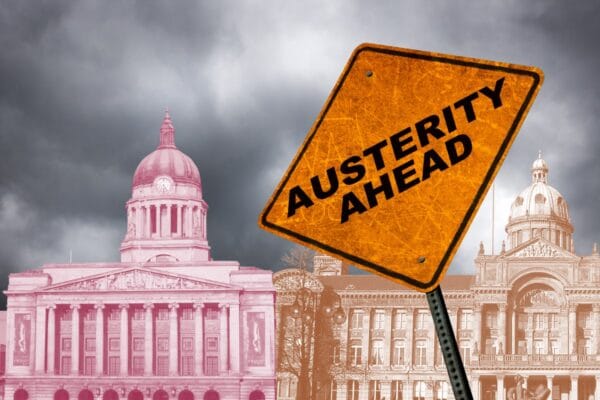
The fact that growth in the last decade was the worst for 150 years, apart from the 1918 pandemic, reveals the depth of the crisis of British capitalism. Of course, added to this is Brexit, which contributed to this decline, by making UK exports more expensive and cutting Britain adrift from its biggest trading partner.
Britain’s level of investment is lagging far behind its competitors. UK investment rates have been 3 percentage points below the OECD average since 1990, an investment gap of about £35bn per year. This spans virtually every investment category and sector. The UK’s capital stock per worker is about half the levels of the US, France, and Germany, putting Britain’s capital gap at several trillions of pounds.
The historic justification of the capitalist class is to take the surplus extracted from the unpaid labour of the working class and reinvest it. The British capitalist class has failed to do so for decades and has brought the country to the edge of ruin, with all the consequences this entails.
“Yes, there is the likelihood of short- to medium-term improvements, provided there are no more big negative shocks”, stated Wolf in an attempt to be cheerful. However, shocks are clearly on the order of the day. We need not look any further than across the Atlantic.
Martin Wolf is quite an astute strategist of capitalism, and his assessment is certainly pointing in the right direction. He draws the conclusion: “But, in the long run, what the government can spend depends overwhelmingly on higher-trend growth. In a stagnant economy, spending more on something means spending less on something else.”
He goes on: “The politics of such zero-sum choices are horrible. This is a big part of why the last government became so unpopular.”
We are caught in what has been described as a “low growth trap”, from which there is no hope of escape. Rather than the economy growing under the new Labour government, it has continued to flatline. Pundits are expecting around 1 percent growth in 2025, leaving aside the impact of any tariffs imposed by Trump. Whatever the exact growth rate, people feel worse off than before. This reflects the true state of affairs.
As a result of this decline in the fortunes of British capitalism, government debt as a percentage of GDP has soared. In 1991-2, it was 24 percent. Today it stands at 100 percent. Added to this is the increased burden that this debt represents, in terms of borrowing costs. The government’s borrowing costs have risen from 2 percent (in 2002-3) to around 5 percent today. And volatility in global markets, particularly bond markets (i.e. the trade in government debt), has intermittently caused these borrowing costs to spike, as investors lose ‘confidence’ in the UK economy.
Britain runs a fiscal, current account, and trade deficit and is therefore dependent on an inflow of foreign investment and savings. Precariously, any loss of ‘confidence’ would see an exodus of foreign investment, collapse of the pound, and even worse conditions. We have already seen tremors of this, with ‘bond vigilantes’ – big investors and financial speculators – dumping holdings of British debt bonds and currency in response to concerns about stagnant UK growth and Labour’s economic policies.
“When you get to the point that you have to borrow money to service the debt and interest rates are rising, so that debt service payments rise, so you need to borrow more money to pay them, you’re in what the markets call a death spiral”, noted Ray Dalio, a billionaire hedge fund manager, in the Financial Times. He concluded that conditions in Britain look like “a death debt spiral in the making”, and called for significant further austerity to avoid the bankruptcy of the state. (FT, 21/01/25)
Public investment is projected to fall, from 2.5 percent to 1.7 percent of GDP, over the next five years. As Andy Haldane, former economist to the Bank of England, stated: “I doubt any country in human history has seen growth pick up at a time of falling public investment from an already too low base. Were that path followed, with the fiscal tail wagging the growth dog, the dog’s days would be numbered.”
With annual productivity growth averaging only 0.5% over the last 15 years, prospects look extremely bleak.
This decline is the background to the implementation of austerity for the last decade-and-a-half. This austerity was not a political choice, as the reformists argue, but arose from the crisis of capitalism. And further cuts and attacks are on the horizon, in response to the demands of the markets for a further pound of flesh.
This bleak picture of Britain is an irrefutable answer to the reformists – both right and left – who think they can restore the fortunes of British capitalism by tinkering with the system, which is entirely false. In that sense, the crisis of capitalism is a crisis of reformism.
As a result of decades of decay and years of austerity, every aspect of British life is in decline or broken: from the health service, our schools, our polluted rivers, our ramshackle transport system, and beyond. Everywhere you look it is the same picture.
At the same time, the shrinking UK manufacturing sector is faced with an avalanche of factory closures and redundancies: from Port Talbot, to Grangemouth, to Vauxhall in Luton. In fact, without generous government handouts, a number of industries, especially car manufacturing and steel, are threatening to pull out and relocate elsewhere.
Most damaging, real wages have been in decline for at least 15 years, a deterioration not seen for 200 years, while the cost of living has risen inextricably.
Political crisis
The decline of British capitalism has been accompanied by a growing crisis of the regime. All the main pillars of the capitalist establishment are rapidly losing their legitimacy in people’s eyes. There is a crisis of the monarchy, which is becoming increasingly out of touch; a crisis within the Church of England, with the unprecedented resignation of archbishops; as well as a crisis of bourgeois democracy, with Parliament and MPs held in absolute contempt. The same goes for the media, the police, as well as other bourgeois institutions. Added to this is the utter disdain for big business and its representatives.

At the end of the day, it was this economic and social decline that finally destroyed the Tory government, which saw its support collapse in their worst election result for over 150 years. Their vote was cut into by Reform, on the one hand, and the Lib Dems, on the other.
The actual turnout for the 2024 general election fell compared to previous years. Starmer’s Labour secured a 171 majority, but got fewer votes than Corbyn. They won only 34 percent of the vote, well down on their polling figures. That means their popular support stood at around 20 percent – hardly a ringing endorsement.
There was also a substantial vote for pro-Palestine candidates to the left of Labour in a whole series of traditional Labour strongholds, anticipated by George Galloway’s win in the Rochdale by-election. In the general election, the result was the victory of five pro-Palestine independents, along with a number who came a close second, threatening to displace right-wing Labour MPs, such as Wes Streeting and Rushanara Ali.
Consequently, many Labour backbenchers will be acutely aware of the precarity of their positions. This heightens the potential for discord and mutiny within the Parliamentary Labour Party, not only from the ‘lefts’, as the pressure in society builds and MPs feel the heat from their constituents. The partial rebellion over the cuts to pensioners’ winter fuel allowance shows the potential for such divisions down the line.
The weakening of the Labour vote is not surprising when Labour’s whole strategy was to dampen expectations. If you promise nothing, then you won’t disappoint if you deliver nothing. There was certainly no great enthusiasm for Starmer amongst workers, but only relief that the Tories were defeated.
There are few, if any, illusions in the new Labour government or in Starmer. This reflects a general erosion of trust towards the traditional parties and their leaders, on a level not seen before. Astonishingly, Starmer’s personal approval ratings have plunged faster than any British prime minister in the modern era.
At the same time, Starmer is viewed by big business not as a serious or reliable representative of the ruling class, but more like an office clerk or flunkey. As such, he is ever so keen to bend the knee and please his new masters. But he is facing an unprecedented situation, as the decline of British capitalism continues to accelerate.
Reeves and Starmer have been courting business for a number of years, attempting to prove that they will be reliable servants of capitalism. With the collapse of the Tories, the ruling class had little choice but to lean on these right-wing reformists to do their dirty work. Today, the right reformists have become the main defenders of the interests of capitalism.
However, the attempt by the government to repair the public finances – the much trumpeted £22bn ‘black hole’ – has angered sections of the capitalist class, who are now faced with increased taxes, regulations, and costs. All of this was done, Rachel Reeves assured, to restore stability and lay the basis for growth.
But the Labour leaders’ promise of stability is utopian when the government is faced with instability on all sides. Just like in Europe, there will be no economic growth, with increased rivalry for world markets and the threat of a global trade war.
Instead of stabilising the economy, the Starmer government has managed to provoke a backlash from investors, who hit back through the markets earlier this year, with a dramatic rise in the yield on UK gilts (government debt bonds), pushing up the costs of servicing Britain’s national debt. This sent the pound falling, while borrowing costs rose to their highest level since the 2008 world slump. This introduced a sense of panic not seen since the days of the Liz Truss government – the first of a series of shocks that will deeply shake the Starmer government.
The unexpected backlash from big business and investors has seen Starmer and Reeves fall over themselves to please their masters. Business leaders have been wined and dined in Number Ten, with assurances that everything in the future will be done to satisfy their needs. Our ‘Iron Chancellor’ has reassured the City and the markets that public spending will be severely constrained.
“We are a government of business”, Starmer has assured. After all, hasn’t he cut the winter fuel payments to pensioners and maintained the two-child policy on benefits, despite pressure from the Labour ranks? Has he not resisted ‘unjustified’ demands, such as compensation for the Waspi pensioners, again despite the pressure from below? And isn’t he now holding down public sector pay and lining up more cuts to public services?
As a consequence of these attacks and counter-reforms, since last July’s general election, Starmer and his government have hemorrhaged support. At the time of writing, Reform UK is polling neck and neck with Labour, with the Tories not far behind in third place. Less than a year in office, Starmer is less popular than all the other party leaders: Badenoch, Davey, and Farage.
In the meantime, the Tories have chosen a new leader, Kemi Badenoch, reflecting a continuing shift to the right in the party and further isolating the One Nation Tories. This once again shows that the ruling class has lost control over the Tory Party. How the mighty have fallen! We should recall that the Tories were once the most successful bourgeois party in Europe. Now they have become a laughing stock.
Starmer’s dilemma
The bourgeoisie therefore has no alternative but to rely on Starmer and the Labour Party. But Starmer is a shallow politician and lacks vision, like the rest of the reformist leaders. Starmer is so superficial that he thinks he is clever in not promising anything, only the mirage of future growth. But this only adds to his growing unpopularity.
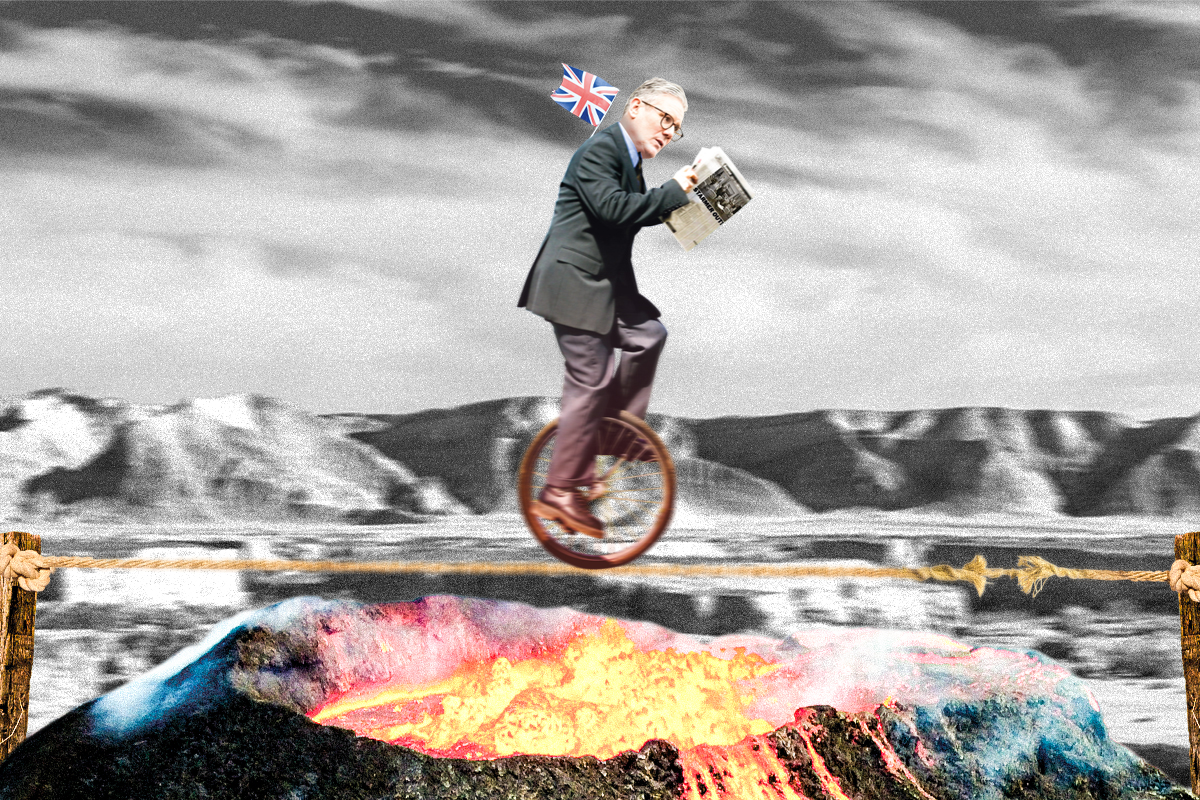
In the past, every reformist government began promising reforms, then ended up with counter-reforms. Starmer has promised very little. And even those measures that he has pledged – such as a higher minimum wage and better workers’ rights – have been fiercely resisted by big business. But no amount of concessions to the capitalists will save him. Far from it.
Starmer has not the slightest chance of turning around the fortunes of British capitalism, as with previous governments. The short-termism of the ruling class, with its failure to invest in productive industry, has doomed the prospects of British capitalism. From every point of view, the picture remains very bleak.
The only strategy open to Starmer’s government is to encourage big business to invest, while keeping the working class in check. This means increased deregulation and privatisation, while attempting to reduce state expenditure. This has intensified following the sharp rise in government borrowing costs, which has prepared the way for a new wave of austerity. All government departments have been told to make further savings, on top of years of Tory cuts. At the same time, with the support of Downing Street, the bosses will exert pressure to keep wages down in the private sector, in order to increase profitability. As we know, profit comes from the unpaid labour of the working class. But cutting wages will also cut the market. It is a catch-22 situation – a reflection of the anarchy of capitalism.
On the economy, the Labour leaders get their marching orders from the Bank of England and the City of London, the centre of UK finance capital. Reeves, a former bank economist, is infatuated with financial services and has described them as “the crown jewel in our economy”. She is promising more deregulation for the City.
However, the City of London and the listings on the Stock Exchange are losing out to New York, as global finance capital looks for greater and greater returns. From a manufacturing nation, Britain has been turned increasingly into a rentier economy. But even this is being undermined by international competition, above all from Wall Street.
At the same time, Starmer will also come under increasing pressure from the trade union leaders, who need to offer their members something. Similarly, Labour MPs will come under increasing pressure from their constituents, angered by cuts to living standards and public services. We already saw the trade union opposition at the Labour conference over the cut in fuel payments for pensioners, which overshadowed the election celebrations. This was a foretaste of what lies in store. The opposition of the trade union leaders to the below-inflation pay offers in the public sector and the threat of strike action is also an indication of what is to come.
This explains Starmer’s dilemma. On the one hand, he needs to show the capitalists and the establishment how tough (‘statesmanlike’) he is by cutting winter fuel payments and refusing to abolish the two-child policy on welfare payments. However, he has also been forced to promise some reforms: increases in the minimum wage and the introduction of more workplace rights. Of course, many of these will be watered down under the pressure of big business before they reach the statute book. For instance, new workplace protections will not apply to the estimated 4.4 million people working in the gig economy. Nevertheless, such measures have still angered the capitalists, while not satisfying the workers.
This Starmer government – this government of crisis – will therefore lurch from one disaster to another as they attempt to grapple with the deteriorating situation. They are under intense pressure from the capitalists, on the one hand, and the working class on the other, reflected in the opposition of the trade unions, the movements on the streets, and the anger in working-class constituencies. The Labour leaders will be squeezed between these two millstones, providing the working class with an education in the limits of right-wing reformism.
The only use the ruling class have for right-wing reformists like Starmer is to keep the working class in check and give them a dose of austerity. However, once they are unable to perform this role, they are of no further use.
But this poses an enormous dilemma for the ruling class. Their traditional political representatives, the Tory Party, are in a state of disarray and degeneration. Their B-team, meanwhile, the Labour Party, is rapidly being discredited and losing support. Demagogic figures like Farage, meanwhile, cannot be fully trusted to represent the capitalists’ interests. Consequently, at a certain stage, the ruling class will come to depend on the left reformists – in particular the leaders of trade unions – to hold back the working class.
On foreign policy, the Starmer government takes its orders from the White House and is completely subservient to US imperialism. Up until now, the Labour leaders have been trying to be more belligerent than the Tory government in support of Ukraine. They have been content to ratchet up the war hysteria, proposing even more money for Ukraine and national defence. Carried away with their own propaganda, they are eager to play a major role on the world stage and prove themselves to Washington, at a time when Britain’s power is in irretrievable decline.
Starmer is determined to push up military spending from 2.3 percent to 2.5 percent of GDP, despite Britain’s crumbling infrastructure and social services. However, the Ministry of Defence is demanding it be raised to 3.6 percent, a rise of 56 percent, taking defence spending to £93bn. Trump is demanding more like 5 percent.
But Britain’s military capacity has been completely hollowed out. As one source said, if Britain was to fight a war comparable to Ukraine, the British army would not last six months. The head of the British army is warning that Britain must be ready to fight a major war in three years time, yet a recent survey by The Times found that only 11% of 18-27 year olds would fight for Britain, dropping significantly from 20% twenty years ago. With Trump threatening to pull the plug on Ukraine, the British establishment is being pressed to put more money into NATO and this lost war.
The impact of Trump on British politics cannot be underestimated at this time. Trump has already attacked the Starmer government for its failure to open up the North Sea and get rid of the “windmills”. And into this pantomime has jumped Elon Musk, acting as Trump’s attack dog. The world’s richest man has developed a special hatred for Keir Starmer: accusing his party of enabling grooming gangs, and even suggesting that the Labour government should be overthrown, asking his followers on X if “America should liberate the people of Britain from their tyrannical government”.
Starmer has had to sit there and take this abuse, in order not to offend his ‘allies’. This demonstrates the nature of the so-called ‘special relationship’ between the US and Britain, which has always been a relationship between a master and servant. And with Britain’s stature on the world stage continuing to diminish, and the UK economy even more vulnerable and dependent on US capitalism, the British establishment is forced to behave in an even more craven and servile manner when it comes to interactions with the White House.
Uncle Sam is going to make Starmer’s life even more miserable. There will be no favours. No trade deal. Only the threat of tariffs. This will only intensify the crisis of British capitalism, and with it the crisis of Starmerism.
The experience of this Labour government, with its programme of counter-reforms and subservience to Washington, will only increase a sense of betrayal amongst workers and youth. This is the meaning of reformism in the epoch of capitalist decline. Starmer is destined to become the most hated politician in Britain.
This can be seen from Labour’s recent collapse in support. In the four months following the general election, Labour lost more than 40 percent of council by-election seats. Meanwhile, its share of the vote fell in 80 percent of these seats, with the Tories making the biggest gains. Added to this is the low turnouts at elections, a reflection of the disillusionment with the political parties. In a local by-election in Barking and Dagenham in November 2024, where Labour retained the seat, the turnout was just 11.2 percent. Even those who voted Labour said it made no difference “as they were all the same”.
As time goes on, Starmer will increasingly be faced with parliamentary revolts as the discipline in the party begins to break down. Already, there are groups of Labour councillors resigning. With defeats in the local elections and at by-elections, many MPs will feel a pressure to revolt in Parliament, adding to the government’s weakness and sense of crisis.
Some Labour MPs, concerned about their careers, are already conscious of – and concerned about – their party’s decline in the polls. “Several Labour MPs and aides told Bloomberg they were surprised by how poorly Starmer and Reeves were performing, and questioned whether they had even had a plan for power,” noted one international article. “[Starmer’s] bumpy landing led some Labour insiders to question whether Starmer and Reeves would survive until the next election.”
In other words, some inside the party are already sharpening their knives, thinking about who could replace the current Labour leaders. Indeed, rumours have circulated that Starmer might even offer up Reeves as a sacrificial scapegoat, in order to appease the markets. One way or another, the crisis of British capitalism and the accumulating pressures in society will find their reflection inside the Labour Party.
Trade unions
With workers’ backs against the wall, and the massive anger that exists, attempts to cut wages and public services further will be a recipe for increased class conflict. After all, wages have been kept down over the last 15-20 years and have failed to keep up with the rising cost of living. In fact, weekly wages are worth the same as they were in 2010. Underneath this average however, for the lower paid sections, real wages have been falling further than most inflation indices indicate – especially when rent and mortgage rates are considered, along with rises in council tax and utilities. According to one metric, average London rents, for example, have increased by around 80 percent since 2010, from £542 per person in 2010 to £983 in 2024. In reality, weekly wages are worth considerably less than before. As a result, British workers have been falling further and further behind, leading to a growing indignation and rage.
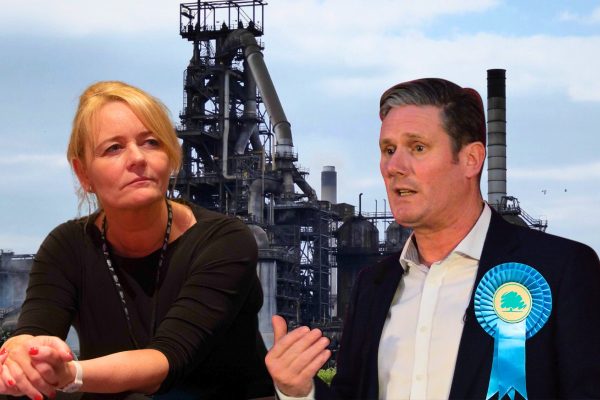
“This lack of growth in real wages is unprecedented in the last two hundred years of British economic history,” explained Paul Johnson, director of the Institute of Fiscal Studies. “There has been no longer period without growth in real wages since the Napoleonic Wars.”
It was this decline in real wages that was behind the strike wave a few years ago. This represented the initial reawakening of the British working class, after a long slumber, involving layers of workers who had never been on strike. While this has dampened down, it showed how quickly the mood can change. At the present time, there is a lot of combustible material around and enormous pressure on the working class. Such pressures have not lessened, but increased. These conditions are preparing the ground for future explosions of the class struggle.
Anger over the proposed 2.8 percent public sector pay offer from the government has raised the threat of industrial action, including from the RCN. Feelings are running high, reflected in the spate of local strikes taking place, involving car workers, food processing workers, health workers, and many others. It is also illustrated by the unofficial strikes at the Hinkley Point power station, where workers have taken action over working conditions and the bullying actions of management. If the trade union leaders continue to drag their feet, further wildcat action could be on the cards across industry.
As we predicted, the trade unions are being pushed into semi-opposition to the Starmer government. However, the trade union leaders are steeped in class collaboration. The TUC leaders are happy to sit on advisory bodies with the employers, or even the governing body of the Bank of England. Their whole outlook is coloured by their belief in the eternal nature of capitalism. All they want is for the employers to be reasonable and negotiate fairly. But in times of capitalist crisis and decline, this is a utopian dream. Such illusions are not only held by the right wing, but also the ‘lefts’.
At this time, the trade union leaders are pleading with Starmer to offer some concessions. But he is resisting these demands, on behalf of the capitalists. There is no money available for teachers and nurses, Labour insists, only bombs and missiles.
The government has agreed a takeover of Royal Mail by a Czech billionaire tycoon. All talk of renationalisation is gone. But the CWU leaders, who are supposed to be on the ‘left’ of the movement, have welcomed the deal, hoping it will be better than that offered by the old owners, and saying it apparently offers the best hope for eventual renationalisation! Dave Ward, the general secretary, welcomed the “groundbreaking” settlement, despite the flimsy promises of the employer. “We are confident we are not going to get anything better than this at this time,” he said. Sharon Graham of Unite said: “This agreement opens the door to a better future for Royal Mail and its workforce.” All of which was reported without comment by the Morning Star, which continues to act as a ‘left’ cover for the trade union bureaucracy.
The trade union leaders’ utter failure to launch a fightback to preserve jobs at Port Talbot and Grangemouth, to name but two cases, reflects their whole outlook. They are all talk and no action. They are simply going through the motions.
In the battles ahead, there will be increased pressure on the trade union leaders. If they do not put themselves at the head of the movement, they will be cleared out. In this way, step by step, the trade unions will begin to be transformed. Under immense pressure they could even be pushed into organising militant action and winning certain gains.
However, as Trotsky explained, under conditions of capitalist crisis, the unions must either ultimately transform themselves into revolutionary organisations or become lieutenants of capital. There is no middle ground.
Developments on the left
Broadly speaking, there is an enormous underlying anger in society; a deep malaise and questioning of the entire rotten status quo. The position of the working class has become increasingly unbearable, having been squeezed for years from all sides. And the situation under Starmer is going from bad to worse.
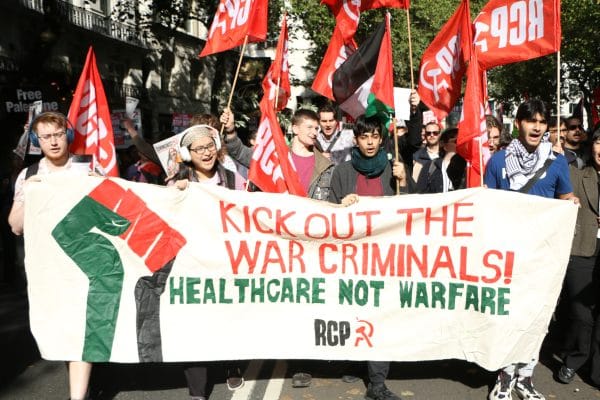
This anger and resentment has built up over a long period of time. It is an anti-establishment mood. It was reflected in the Scottish referendum in 2014, the election of Corbyn in 2015, and even the Brexit vote in 2016. Boris Johnson also attempted to tap into this, putting forward a certain ‘anti-establishment’ rhetoric. In Europe, it is reflected in the rise of populism, on the right and left, as expressed in Germany by the AfD and the Sarah Wagenknecht party. It existed in the United States in Bernie Sanders, who then sold out to the Democratic establishment, and now in Trump.
Given the utter bankruptcy of the official ‘left’ in Britain, the burning anger in society is increasingly being expressed outside of Parliament and the trade unions. Riots and protests have broken out against police brutality and social deprivation, for example, in places like Ely (South Wales), Leeds, and Manchester. Farmers, squeezed by the crisis of British agriculture and Labour’s budget, have even taken to the streets of Westminster in recent months. And in recent years, mass movements have erupted – particularly amongst the youth – over questions like racism and climate change.
The Palestine solidarity movement was a powerful expression of this mood. As we explained from the beginning, the question of Gaza provided a lightning rod for all the accumulated anger and discontent in society. Despite state repression, establishment propaganda, and media lies, millions came out in support of the Palestinian people, with warmongering Labour MPs even facing protests outside their constituency offices.
Importantly, a whole new layer was drawn into politics and radicalised by events in the Middle East – in particular, Muslim and Asian youth. Despite the subsiding of the Palestine movement, we must continue to make efforts to reach, win, and organise these layers.

The Palestine student encampments, inspired by similar protests on US campuses, were an indication of the radicalisation amongst the youth, in particular. And with UK universities at breaking point, and students facing the prospect of higher fees, soaring rents, and worsening learning conditions, British campuses are a tinder box that could explode again at any time.
At the same time, the movement for Palestine underlined all the political weaknesses of the ‘left’ leaders. Groups like Stop the War and the Palestine Solidarity Campaign, led by an alliance of left reformists, Stalinists, and sectarians, are seeped in liberal pacifism and reformist illusions. As with the Corbyn movement, these ‘lefts’ provided no strategy or perspective to the movement, beyond endless A-to-B marches and meek calls for ‘peace’. They played no role in bringing about the ceasefire in Gaza, and are now sowing illusions in what this imperialist peace deal represents.
Because of these failures, the Palestine movement today is not mobilising as many people onto the streets or in the universities as it was before, though the cause retains deep support. The result will be that some people become demoralised and drop out of the movement. Others may be drawn into desperate, adventurist methods, which will lead to increased state repression and can alienate workers.
The experience of the last one and a half years will generate introspection among a layer of activists who are looking for ideas beyond A-to-B marches and student encampments. This opens up the possibility of recruitment among a significant layer of workers and youth radicalised on the question of Palestine, by linking it to broader questions of capitalism and imperialism.
The underlying conditions that made Palestine a ‘lightning rod’ for all the anger in society are still there. And, at a certain point, with the leaders of the ‘left’ and labour movement offering no real alternative, the same and rage will find another accidental expression or temporary reference point.
We do not have a crystal ball. We cannot say exactly how this mood will express itself in the coming period. The point is to underline the underlying process that is driving this process: the extreme volatility inherent in the situation, with dramatic swings from one direction to another, as ordinary workers and youth seek a way forward out of capitalism’s impasse.
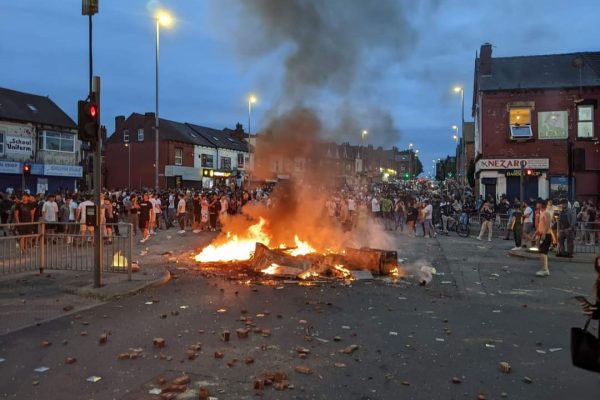
Given the coming demise of the Starmer government, will this mood be reflected in the Labour Party in some way? Given that much of the Labour Party has been hollowed out, it seems unlikely that this will result in the rise of a new left within the party. However, we should keep our eye on possible developments.
The crisis of right-wing reformism will certainly see the growth of left reformist and oppositionist currents in the wider labour movement, in particular the trade unions. Meanwhile, pressure from below – including the unions, mass protest movements, and the wider working class – will push MPs within the party to raise their heads. This opposition may not come from longstanding ‘left’ MPs, but from other backbenchers, who can shift to the left on the basis of events, just as Tony Benn and others did in the past.
How far this develops we will have to see. We do not write off the Labour Party, as the sects do. Millions of workers, despite their hatred towards Starmer, and given the weakness of the revolutionary party, still see no alternative to the Labour Party at this stage.
Although difficult to say, the Labour government – wracked by crisis, but propped up by the ruling class, for fear of the alternative – could last its full term. But the longer the government survives, the greater will be its downfall.
What is clear, even now, is that the next general election will see a massive defeat for the Labour Party. Labour’s right wing will be completely shattered. Whether the trade unions will assert themselves following this we will again need to see. After all, they are a very conservative force and only respond under enormous pressure.
If this avenue of a left development within the Labour Party is blocked off for any length of time, developments can express themselves in other ways, to be determined by events. Given the intense volatility, it cannot be ruled out that some left formation will emerge. Galloway’s Rochdale victory and the election of a handful of pro-Palestine independents are a small indication of this potential.
If – and it is a big if – a strong left reformist current were to develop in the Labour Party, it could only develop on the basis of truly titanic events. If this occurs, we will need to orientate towards it in some way to win over the radicalised workers and youth in its ranks.
At the same time, with a strong hatred towards the entire Westminster system, there is also the potential for large, spontaneous protest movements of an ‘anti-political’ character, which reject all the mainstream parties and politicians. The example of the ‘gilet jaunes’ in France from 2018 onwards could certainly be replicated in Britain, as could social explosions like the 2011 summer riots.
There is no point in speculating at this time. We will need to follow the situation to see how things develop and adjust our tactics accordingly. For the foreseeable future, we will maintain our open work as our main field to build the revolutionary party.
We should bear in mind that such will be the hatred for Starmer, it is possible that some Labour affiliated trade unions will move in the direction of disaffiliation. While we are not in favour of disaffiliation as a policy, if this happens, we must be skilful in connecting with the radicalised trade unionists who are moving in that direction.
As we know, there have been attempts to form a new workers’ party, so far with little traction. The Workers Party of George Galloway is one such example. However, its policies are left reformist and coloured with British nationalism. Galloway’s success has been mainly due to the issue of Gaza. On this basis, he won Rochdale, but then lost it. His party is a political mishmash, allowing all sorts to stand as candidates, and regards itself more as an electoral machine than a party with real roots in the working class. It is likely to remain on the fringes or even split apart.
Without exaggeration, this ‘left’ is the worst left we have ever had. The most it has been able to achieve in the last period was Momentum, the leaders of which capitulated and betrayed the Corbyn movement, and Enough is Enough, which made zero tangible impact before disappearing, despite enormous grassroots potential. Recently, when the crisis over increased borrowing costs erupted, providing a golden opportunity to expose the pro-capitalist policies of the government, no ‘left’ MP – whether inside or outside the Labour Party – intervened. They were all totally silent!
The left reformists have nothing to say about the crisis of capitalism. All they can offer is palliatives, nothing more. According to the Morning Star, the mouthpiece for the Stalinists and ‘lefts’, their ‘solution’ is for “socialists and unions to urgently unite around a programme of state-led investment in industry and public services to turbocharge growth, buttressed if necessary by capital controls to keep global speculators at bay”. In other words, we must bail out the capitalist system by subsidising the capitalists to “turbocharge growth”, and at the same time impose useless controls of capital. How politically degenerate these people have become! The Stalinists are no different from the feeble left reformists and their illusions in capitalism.
The ‘left’ in Britain is floundering, incapable of connecting with the real mood of bitterness and anger. They are soaked in liberalism and obsessed with ‘woke’ politics, at a time when the working class is increasingly alienated from this nonsense. These reformists feel completely downhearted and despondent about what is happening. This was reflected in the Guardian by Owen Jones, who fretted about the situation in Europe and America, concluding: “A grim reckoning awaits us.”
At bottom, even the best of these left reformists have fatal illusions in capitalism. That is why, as Trotsky explained, betrayal is inherent in reformism.
Scottish nationalism
The crisis of capitalism has also badly tarnished the Scottish nationalists, who were regarded at one point as a radical alternative in Scotland. With the implosion of Labour north of the border following the independence referendum, the SNP practically created a one-party state. This ascendency has now been undermined by the SNP leaders’ attempts to navigate the crisis and accommodate themselves to the system. Above all, their failure to shift the ground on independence, and the party’s role in presiding over economic decline, has gravely undermined the SNP’s support. Sturgeon got out just in time, although the SNP’s finances are still under police investigation.

While Labour has partially recovered in Scotland, the recent actions of the Starmer government have blunted this recovery. As Starmer becomes more and more unpopular, and support for Reform grows, the nationalists will benefit. Recent polls still indicate over 50 percent support for independence. One poll reached 56 percent, the highest level in four years.
However, while the SNP is pivoting away from the more radical policies of the past, given Starmer’s role, and as a reaction against the rise of Reform, it is likely that the SNP could see a revival in the 2026 Holyrood elections. Nevertheless, given the deepening crisis of capitalism and without any fighting strategy for achieving independence or combatting austerity, support for the SNP will be unstable.
As with other areas of the country, a growing layer north of the border will draw revolutionary conclusions from these events and experiences. Amongst the youth, in particular, there is the potential for a section of left nationalists to come over to communism and revolution. The greater a force we can build in Scotland, the more pronounced this development will be.
Climate crisis
From the shrinking of the ice sheets in the Arctic, the Los Angeles fires, to the floods in Valencia: the climate crisis is intensifying all contradictions – within the world economy, and between both the classes and the imperialist powers. Trump claims Greenland for the United States as a strategic naval base in the newly-opened Arctic region. The price of staple foods has soared due to the impact of droughts and floods on crop harvests, alongside desertification and deforestation, adding to other inflationary pressures. And in Spain, the King faced the wrath of the working class over the failure of the capitalist state to protect them from the effects of the floods.
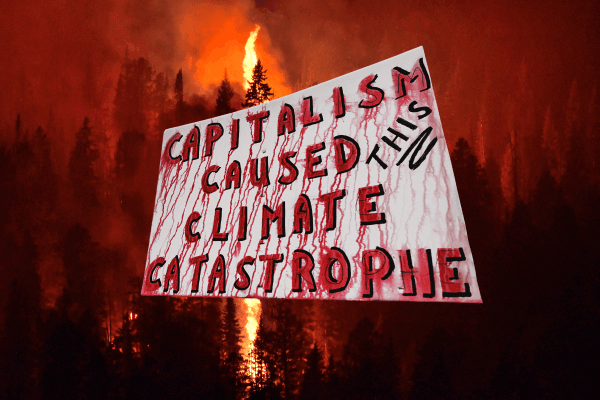
The ruling classes have done nothing to urgently stop the impending climate catastrophe. In fact, given the other proverbial fires blazing across the world, they are now sidelining the issue altogether. In the USA, Biden presided over an unprecedented boom for the American fossil fuel industry, paying lip-service to a future ‘Green New Deal’, while Trump has dropped the pretence of any concern for the climate altogether. In Europe, climate change has also been all but removed from the political agenda. Rearmament in the face of the collapse of NATO, and concerns over energy supplies in the aftermath of the Russia-Ukraine war, have trumped all of the capitalists’ crocodile tears and hand-wringing over the climate and the environment. International COP summits, meanwhile, have been little more than a farcical pantomime; an impotent talking shop.
At the same time, the floods in Spain, fires in California, massive hurricanes across the US, and every other instance of climate-related disaster, have all demonstrated the utter inability of the ruling class and their anarchic profit system to handle the devastating impacts of the climate crisis. Capitalism cannot provide the infrastructure, organisation, or planning needed to mitigate the disastrous effects of these climate-related catastrophes. Instead, these events are showing how capitalism means the prioritisation of profits over human lives.
In Britain, extreme weather events are further exposing how vulnerable and fragile British capitalism is to ‘external shocks’, following decades of austerity and lack of investment in infrastructure. Winter storms, for example, regularly cause severe flooding and electricity outages across the country, as well as the disruption of agriculture and services.
The reformists also have no solution to offer to the worsening environmental crisis. In one way or another, their suggestions ultimately equate to making the working class pay for this crisis: either through ‘green’ austerity, with increased taxes like ULEZ; or by restricting economic growth, based on the reactionary and utopian idea of ‘degrowth’. These policies play right into the hands of right-wing populists and demagogues, who use green austerity and the disruption to ordinary people’s lives caused by isolated protestors to fuel a climate culture war.
In most cases, the climate catastrophe is not a central question for the mass of workers – although the example of Spain shows how climate-related events can act as a spark for all the accumulated, combustible class anger in society. Nevertheless, the climate crisis has become a burning issue amongst young people. And the inability of the ruling class to solve this pressing problem has repeatedly pushed the youth into action – previously with the international ‘Fridays for Future’ movement (the climate strikes), and more recently with direct action groups like Extinction Rebellion and its offshoots: Just Stop Oil (JSO) and Youth Demand.
At the same time, the disbandment of Just Stop Oil shows that many climate activists are seeing the need to go beyond mere direct action, whilst others have become demoralised by the ineffectiveness of such tactics, which have little to show for themselves other than the arrest and burnout of scores of activists. Similarly, the splintering of radical activists away from JSO to form Youth Demand – aimed at addressing not only the climate crisis, but also the role of western imperialism in the oppression and slaughter of the Palestinian people – shows that more advanced layers of young people are seeking a militant programme that links together all these related struggles. We can win the best of these activists to our communist programme and party, by patiently explaining the common cause behind all these questions: capitalism and imperialism.
Polarisation and populism
We are in a period of sharp turns and sudden changes.
A new general election – when it comes – will open a Pandora’s box for the ruling class. The centre ground will have become completely hollowed out, a reflection of the political polarisation within society.
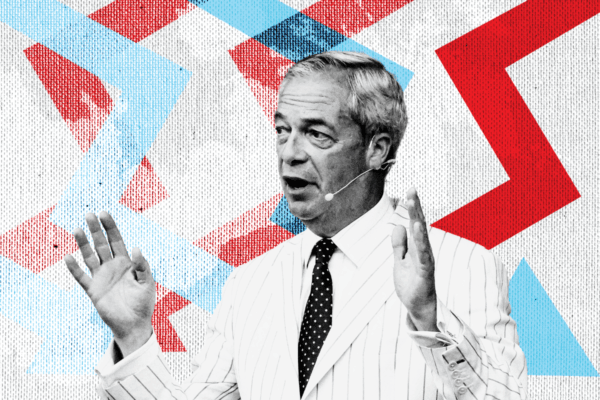
At this point, the discredited Starmer government will be doomed to defeat. On the other hand, the Tory Party, increasingly ‘Trumpised’ under Kemi Badenoch, will be an unreliable agent, even more so than in the past. The Tory Party of the days of Baldwin, Churchill, and Harold MacMillan is long gone. And what remains of it has turned to the outer fringes of English nationalism
Gone are the days when the ruling class could rely on the two-party system for stability. In the past, it was like a game of cricket, where the Tory First Eleven would give way to the Labour Second Eleven, in a continuous cycle, and where nothing fundamentally changed.
The idea of handing power to the lunatics of the present Tory Party, at a time of heightened class conflict, is hardly welcoming for the ruling class. The idea strikes them with horror.
There is enormous anger in society. Anger at the Tories. Anger at Starmer. Anger at capitalism. Anger at the prolonged squeeze on living standards. Many are searching for a way out of this blind alley. This has created an enormous vacuum in society. Unfortunately we are too small to fill this vacuum. Meanwhile the ‘left’, who are politically bankrupt, have completely failed to offer an alternative. In fact, with the exception of the four years of Corbyn, there has been no real left wing in British politics for decades.
Farage is attempting to fill this political vacuum with his brand of populism. As with other right-wing populists, he has been able to feed on the discontent in society.
Farage is a complete maverick and right-wing opportunist. He is hoping to capitalise on his position as an MP, with ambitions to replicate the victories of Trump and the right populists in Europe.
Farage is positioning himself, given the lack of any alternative from the ‘left’, as the main anti-establishment figure. He is even making a concerted effort to appeal to disaffected youth. Asked what Farage had in common with Corbyn, he suggested their common “anti-establishment” stance; their shared “sense that the giant corporations now dominate the world that we live in, that politics is very much in the pocket of big corporations”.
This is an attempt to appeal to broad layers of the working class who have been alienated over the years. However, as supporters of capitalism, Farage’s supposedly ‘anti-establishment’ views are simply hot air.
Farage understands that disillusionment with the Starmer government will provide further fertile ground for his right-wing populist politics. Given the violent swings of opinion and the hollowing out of the centre of British politics, together with the lack of a credible left alternative, Farage is hoping to attract a layer of workers who are looking for a way out and are open to demagogy, just as Trump has in the USA.
Importantly, Farage will not be short of money, particularly thanks to his links with the American right. With help from Trump, Musk, and others, Reform can make an impact.
The sects have claimed that we support Trump. This is of course nonsense. We simply recognise his working-class base of support, which he has been able to build due to the bankruptcy of the ‘lefts’. The sects are blind to the attraction of populism – its anti-establishment rhetoric – and only see reaction, nothing more.
Of course, this right-wing populism is reactionary. However, the profound discontent that exists provides fertile soil for their attacks on immigrants and racist ideas, with no real alternative being put forward. This fed into the reactionary riots last summer, in the north of England and elsewhere – a magnet for lumpen types and the dregs of society. However, this in turn gave rise to a much bigger backlash against the far right, especially involving black and Asian youth. Under such conditions, these youth will draw very radical – and even revolutionary – conclusions. We must make every effort to reach out to them.
The left reformists and sectarians are completely at sea politically. They are utterly disoriented and blinded by events, and only see stark reaction in front of them. They are incapable of seeing the underlying processes, which will turn everything into its opposite. They fail to see that this growth in populism is also an expression of the yearnings of the masses for a way out. But right-wing populism will not offer a solution, as it operates on the basis of capitalism. Once the illusions in these populists are tried and tested – then shattered – there will be a sharp shift to the left amongst these same masses, still searching for a solution.
A similar process was seen in Britain in the wake of the 2016 Brexit vote and the Tory victory in the 2019 general election. On both occasions, superficial empiricists on the ‘left’ were filled with pessimism, declaring that Britain was an inherently right-wing, racist country. A year after the EU referendum, however, Jeremy Corbyn almost came to power on the basis of a left-wing, class-based programme. And within months of his landslide election win, Boris Johnson was presiding over one of the most crisis-ridden governments in British history.
These examples demonstrate the importance of a dialectical perspective; the need to not be impressionistic, and get fixated on what is immediately in front of us. Such a blinkered, empirical outlook inevitably leads to doom-and-gloom, and in turn to mistakes of both an opportunistic and ultra-left character. Instead, we need to understand how volatile the situation is; how consciousness can rapidly change and swing from right to left, and back again; and therefore how things can – and will – turn into their opposite.
We should be clear, Farage is a right-wing populist, nothing more. He is certainly not a fascist, as the sects claim. They babble on meaninglessly about the political ‘far right’, as opposed to the traditional ‘right’. But where is the fundamental difference between Farage and Tory leader Kemi Badenoch? Or between reactionary figures like Meloni and Le Pen, and the conservative right-wing parties they are seeking to replace?
Tommy Robinson and his ilk are another matter. The fascist, racist gangs that reared their head last summer can pose a real threat to working-class and ethnic-minority communities. At the same time, they are massively outnumbered by the size and strength of the working class, and can easily be driven off the streets by the mobilisation of workers and youth – as was demonstrated by the response to the genuine far-right menace last year. We must soberly explain this to those we meet with sincere concerns about racism and the far right, whilst ignoring the bleating of the sectarians and reformists who raise a hue and a cry about the supposed ‘threat of fascism’. They use this hysteria to justify popular frontism and an adaptation to liberalism.
As with all the populists, Farage opportunistically portrays himself as an anti-establishment figure. He will certainly seek to whip up reactionary sentiments on immigration and other issues. But above all, he will seek to fill the colossal vacuum that exists in ‘broken’ Britain.
The ‘left’ have failed to fill this vacuum, with their weak reformist politics and their pandering to identity politics. There is now a conscious rejection of identity politics (‘wokeness’) amongst wide layers of the working class in Britain and internationally. By associating themselves with identity politics and distancing themselves from the working class, the ‘left’ have provided a golden opportunity for Farage to capitalise on the situation. Let us be absolutely clear: it is these ‘lefts’ who are responsible for this development.
The only real answer to Farage and these reactionary demagogues – and all those who defend the status quo – is a bold revolutionary programme, linking our day-to-day problems with the need to overthrow the capitalist system.
That being said, Reform supporters are not a milieu from which we will recruit in the immediate term. While some of these people have a healthy class hatred of establishment politicians and even the banks and corporations, it will take time and big events for these layers to draw revolutionary conclusions. We cannot feed ourselves on the fruit of tomorrow. Our immediate task is to recruit amongst the radicalised youth, some of whom will be genuinely concerned, and even fearful, about the rise of right-wing populism. This is something we must respond to sensitively, while exposing the hypocrisy of the liberals and the impotence of the reformists. We can then train these young recruits in how to connect with wider layers of the working class through patiently and skillfully explaining our class programme.
The growing popularity of Farage and Reform could result in a huge electoral upset. The writing is already on the wall. In January of this year, one survey put Labour and Reform both on 25 percent of the vote, with Farage’s party predicted to come out ahead on seats, by 209 to 203. The Tories and Liberal Democrats had a projected 82 and 72 seats, respectively. A second poll around the same time drew similar conclusions, putting Labour on 26 percent and Reform on 25 percent, with the Tories on 22 percent.
In Wales – where Labour has little to show for its time in power; where working-class communities have suffered from decades of deindustrialisation and deprivation; and where a majority voted for Brexit in the 2016 EU referendum – Reform is currently a close second in the polls, according to a survey from December 2024. Farage’s party is predicted to gain 23 percent of the vote in the upcoming Senedd elections, scheduled for May 2026: one percentage point behind Plaid Cymru, and level pegging with Labour.
These are only a few polls, and the situation could change. But Reform has certainly got the wind in its sails.
Given that Reform took chunks out of the Tory vote at the last election, it is clear that a section of the Tories – and probably a majority of its ranks – would be in favour of some kind of deal with Farage, so as to prevent a split vote. Of course, such an embrace would cement the fate of the Tory Party. It would be the kiss of death.
In any case, Farage is looking not to make a deal with the Tories, but to replace them. He will attempt to eat into not only the Tory vote, as was the case in 2024, but also the Labour vote in the Brexit voting areas, attracting the ‘left behind’ sections. And given the profound disillusionment with Starmer, this seems a very likely prospect.
Although it is impossible to predict the parliamentary arithmetic, Farage, depending on the number of seats he wins, is likely to enter some form of right-wing coalition government. With the complete collapse in the Labour vote, the victory of such a right-wing formation is entirely possible. However, unlike in 2019, this time Farage will have the upper hand, which will land him a top ministerial position.
This idea is not far-fetched. At the time of writing, for example, the right-wing populist party in Austria, the Freedom Party, is being asked to form a government, after gaining the highest share of the vote in the wake of the collapse of the old coalition of social-democrats, liberals and conservatives. This has caused a political crisis. Now the conservatives have decided to join the Freedom Party as a junior partner in a new populist-led government.
Given the electoral system in Britain, such a right-wing coalition would likely not be a majority government, but a minority one. As a result, it would be extremely unstable and would become quickly discredited on the basis of events.
The sects will, as usual, tend to lose their heads. They will be banging the drum about the dangers of fascism and other such nonsense. While we do not ignore reactionary developments, we can also see their limits. Fascism in the past was a mass movement of the ruined petty-bourgeoisie, used by the ruling class as a battering ram to destroy the organisations of the working class. Today, the working class has never been so powerful.
The class balance of forces is extremely favourable to the working class. This has been demonstrated on countless occasions in recent times: from the massive wave of industrial militancy in 2022-23; to the millions who have taken to the streets over Gaza; to the tremendous response of workers and youth to the far-right riots last summer. These examples, and more, demonstrate the real underlying situation. Of course, the sects have no sense of proportion, and no perspective. They are empirics of the worst kind. They reflect the hysteria of the petty bourgeoisie.
Our task is to analyse and understand the underlying processes, and not become mesmerised by the surface of events. Above all, we must understand that these underlying processes are preparing revolutionary convulsions.
Given the rapid decline of British capitalism and a deepening crisis on the world stage, a Farage/Tory coalition government would be forced to carry through massive attacks on the working class. Very quickly, such a government would come up against the mighty force of the working class, especially the youth. It would lay the basis for a massive shift to the left, and the opening of a pre-revolutionary situation.
A Farage/Tory government would be a government of crisis, as will all governments in this epoch. Given the tumultuous unfolding of events, such a government would be very unlikely to last its full term.
On the back of intense class struggle, some kind of ‘left’ government could come to power. However, as it would inevitably be of a reformist or left-reformist nature, it too would be hemmed in by the crisis. Such a government could be described as a Kerensky-type government, with Britain entering a deepening revolutionary crisis.
Even when Corbyn was leader of the Labour Party, there were noises coming from sections of the military top brass threatening a rebellion. This was a glimpse of what lies ahead. At a certain point, the ruling class will see no way out except the destruction of the organisations of the working class, which act as a barrier in driving down wages and conditions, and thereby restoring the profitability of the capitalists. All kinds of conspiracies will be hatched to do away with bourgeois democracy. But when that time comes, the ruling class will hesitate many times, fearing they may lose everything by provoking revolution. We must underline, however: all this is the music of the future.
Process of revolution
On the basis of such events, significant layers will draw radical and revolutionary conclusions. These developments will provide our party with great opportunities to build and develop.
Even today, 47 percent young people in Britain think that “the entire way our society is organised must be radically changed through revolution”, according to a recent Channel 4 poll. This desire for a radical upheaval will, of course, express itself in contradictory ways. The same poll found that 52 percent of youth want a “strong leader” who will do away with parliament and elections, and that one in three want the army to take power. Furthermore, there is rising support for reactionary figures like Andrew Tate and Jordan Peterson among a small section of young men.
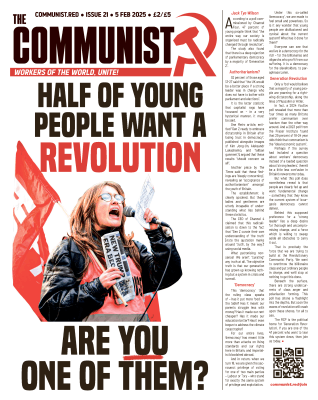
With a formalistic approach, it would be impossible to make sense of these contradictory tendencies. In reality, all this reveals is that there is a deep polarisation taking place in society, and young people – on either (and neither) side of the culture war divide – are losing their faith in the status quo, and are searching for alternatives. In this process, people will seize upon all manner of confused, accidental ideas. But this is superficial; the underlying process is one of a growing rejection of the establishment and the system.
Not all of these 47 percent of young people will be open to communism just yet. But a sizeable minority will be. And even more can be won over in the future, on the basis of strengthening our forces.
Importantly, the potential exists for us to build a modest party of possibly 5,000 or 10,000 in the period opening up. The main reservoir of potential recruits is in the youth. The student youth are especially important, given their concentration and openness to revolutionary ideas. Young workers will also become increasingly attracted to communist ideas and an important source of recruitment.
Our main task will be to educate and train these recruits, developing them into cadres for the titanic events that impend. Events, and the change of consciousness, will open up new possibilities for growth, and set the stage for a much larger revolutionary communist party.
We, of course, need to maintain a sense of proportion and a Marxist perspective, grounded in reality. A perspective is not a blueprint but a working hypothesis.
We must always bear in mind that human consciousness, taken as a whole, is very conservative and slow-moving. People tend to cling to the past. It therefore takes huge events, huge hammer blows, to force the masses to rethink their position and actively seek a way out. When consciousness catches up it does so in an explosive way. For example, due to the war, the Bolsheviks grew from around 8,000 members into a mass party of hundreds of thousands within months. Such is the dialectic of history.
The process towards revolution will inevitably be a protracted one. Why? Firstly, because of the balance of class forces. The working class has not been defeated and is in a strong position. The ruling class, meanwhile, is in a relatively weak position, and is forced to rest upon the trade union and Labour leaders to keep the working class in check. The ruling class cannot impose its authoritarian solution unless the working class is decisively defeated. Secondly, the subjective factor, our revolutionary party, is still too weak.
Unlike in the 1930s and 1940s, where things were posed very sharply between proletarian revolution and fascism, the perspective today is that events will take a more protracted course. The positive side to this is that we will have more time to develop our forces, politically and organisationally. We must make sure we do not squander this time.
If we do our work properly, we can emerge as a factor in the situation.
The way is being cleared for us. The Stalinists have collapsed as compared to the past, and the sects are in a state of crisis.
Of course, we must not be complacent or big headed. We have a long way to go. We do not need exaggerations or stunts to build the party. Such methods only lead to a blind alley.
In the period opening up, there will be no shortage of events or possibilities to develop the forces of genuine communism. But we must always keep our feet on the ground and take a measured approach. The main task facing us is to develop cadres. When the situation breaks, these cadres will provide an essential backbone in building a sizable party.
Trotsky explained it was easier to jump from a thousand to ten thousand than to develop from 40 to a thousand. That is perfectly true. But that does not mean it will be easy. The road to a thousand was long and painful. The road to ten thousand will also be hard going. However, we can say our prehistory is over and a new higher chapter has opened.
There is no objective reason why the party could not double its membership over the next twelve months. However, whether we are successful or not is down to our subjective strengths and weaknesses. We must try to overcome our weaknesses. That is why we have been concentrating on strengthening the branches and cadre building.
We have historic tasks in front of us. We must see the big picture and educate ourselves in the perspectives opening up. We must tighten up at all levels and attend to the small details. The revolution after all is made up of a thousand and one different tasks.
We must take Trotsky’s warning to heart: “If you do not train good, serious administrators at every level of the movement, you will not win even if you are right a thousand times over.”
Above all, we must raise the political level of the party, which is not sufficiently high. Ted Grant always said we needed to raise ourselves up to the tasks posed by history. With common effort, we will get there.
In Where is Britain Going? Trotsky always said we should rest upon the revolutionary traditions of the British working class, including the Ironsides of the English Revolution of the seventeenth century and Chartism in the nineteenth century. That means we must have a sense of our history.
In the conclusion of this work, Trotsky explains that: “[The British revolution] will be one of the greatest dramas in world history. The destiny of the British proletariat in this struggle will be linked with the destiny of all mankind. The whole world situation and the role of the British proletariat in production and in society will guarantee its victory – on condition there is a correct and resolute revolutionary leadership. The Communist Party must develop and come to power as the party of the proletarian dictatorship. There are no ways round this.”
This is our fundamental task, on which the fate of the working class and that of humanity rests.
